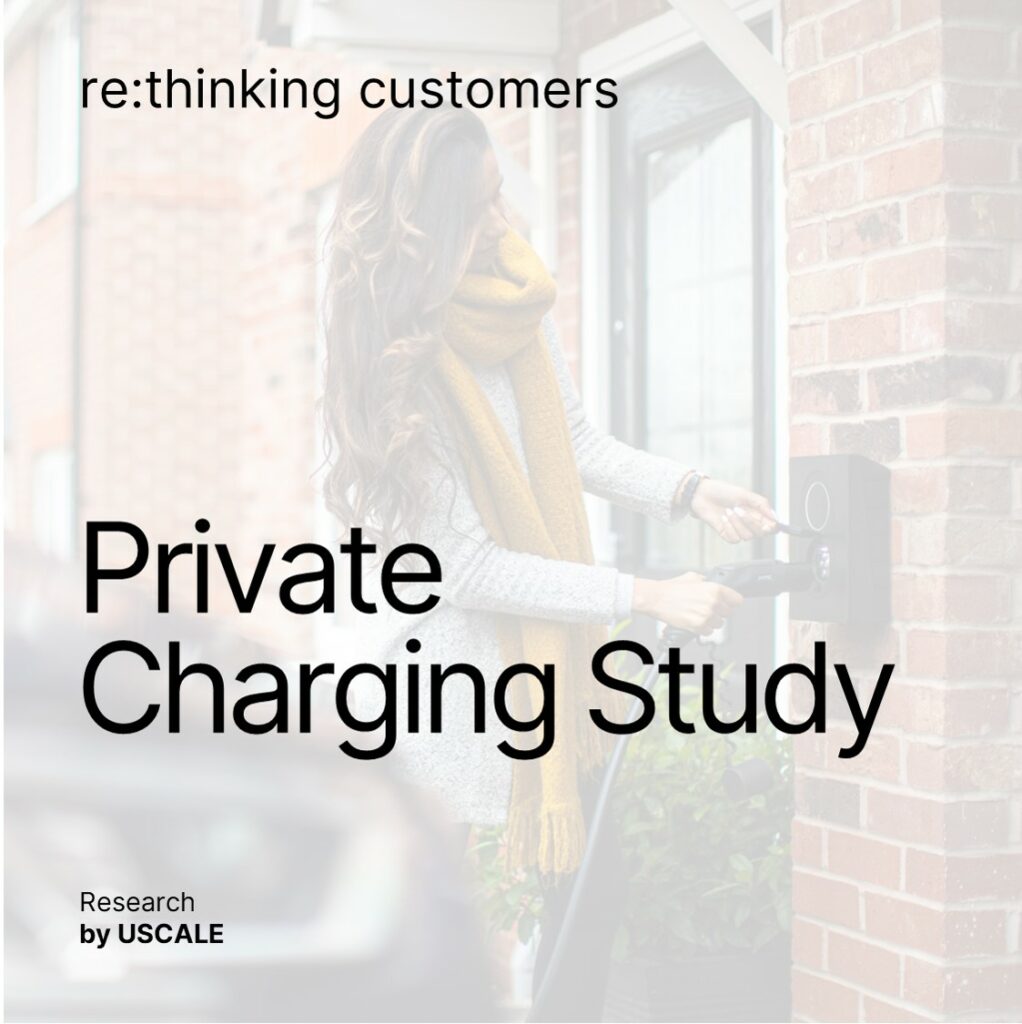eMobility Private Charging Study 2024

Private charging solutions, preferences and experiences with charging at home
The Private Charging Study generally asks owners of electric cars about their experiences with their charging solution at home.
For the study, 2,986 e-car drivers in Germany were surveyed online between July and September 2024. In the first part of the study, all study participants were asked about their general charging behaviour. In the second part of the study, 1,223 EV drivers who charge at home are then asked specifically about the ‘home’ charging use case.
The private charging study was also conducted in August 2023 with a slightly smaller sample in 6 other European markets (FR, UK, IT, ES, NL, NO) as well as in the USA, China and the Arab Gulf states.
CONTENT AND ADDED VALUE OF THE PRIVATE CHARGING STUDY
Content of the Private Charging Study
Segmentation criteria:
- Charging behaviour (charging locations, charging occasions, charging frequencies, SoC during charging, reasons for not charging at home, charging types)
- Driving habits (mileage per year and per weekday, frequency of long-distance journeys, general usage habits)
- Demographics of e-car drivers
- Motivation eMobility
- Housing situation
General charging behaviour:
- Charging locations
- Energy quantities per charging location
- Charging occasions
- Charging routine
- Reasons for not charging at home
- Charging types
User story for USE-CASE charging at home (for user stories on public charging, see public charging study)
- Attractiveness of the charging location
- Relevance of the charging location for own charging behaviour
- Evaluation of the charging location (availability, price, suitable for the usual length of planned stays, suitable for daily routes, convenience)
- Split of use, attractiveness and relevance of charging at home according to vehicle type, company car, driving routes, place of residence, EFH/MFH, charging technology at home, charging preferences, charging power, demographic characteristics)
Purchase process:
- Buyer type
- Information sources and evaluation of how helpful the information sources are
- Places of purchase
- Satisfaction with clarification of all open questions in connection with the purchase process (technical, organisational, financial, legal and implementation issues)
Charging technology:
- simple / smart / mobile wallbox, second wallbox
- Proportion of socket chargers, reasons for using a socket instead of a wallbox
- Wallbox charging capacity
- Other technical components at home (PV system, battery storage, energy management, etc.), reasons for not using PV system
- Manufacturer and technical functionality of the wallbox
- Billing in the apartment block
- Authorisation in the apartment building
Problems and satisfaction:
- Charging problems (frequency, type of problems)
- Wallbox satisfaction (quality, UX, range of functions)
- NPS manufacturer, reasons for non-recommendation
…in the event of a new decision:
- Most important aspects for purchase decision in general
- Other technical components (PV, battery storage, etc.)
- Important technical features of the wallbox
- Communication interfaces
- Recommendations to manufacturers of charging technology
Charging contracts:
- Change of energy supplier or tariff in connection with the purchase of an e-car
- Current vs. previous supplier (migration)
Target group of the survey
For the study, only e-car drivers who not only have a home charging station but also regularly charge at home were surveyed. Furthermore the survey structure makes it possible to differentiate between residents of single-family homes and residents of apartment buildings.
Added value and benefit for charging technology manufacturers and suppliers
The study primarily targets manufacturers and suppliers of charging technology for private charging.
Home charging solutions mostly include smart and standard wall boxes. In addition, in many cases there are integrated photovoltaic systems and the corresponding networking of the systems. The extensive survey and the high sample size provide a precise picture of current user behaviour, problems and wishes.
The results show manufacturers, providers and installers of private charging solutions and their smart integration into building technology both what the users’ expectations and wishes are. This provides not onl y charging technology manufacturers and retailers but also service providers with valuable input on what really matters, which prioritised needs for action can be derived and how they can design their future offers. In this way, they can concentrate their development and investments on the offers that lead to the highest demand, the highest customer loyalty and thus the highest turnover. Furthermore, subscribers to the study receive valuable information on the sales potential of future upgrades and cross-selling offers.
Dashboard for analysis
Many exciting findings only become apparent when the results are evaluated separately according to important customer groups. This allows providers to target their offers to different user segments in a differentiated way. Thanks to the high sample size, subscribers to the study can split the results in the interactive dashboard as they wish and analyse them in detail. In addition, the dashboard shows all pre-clustered verbatim mentions of the respondents.
USCALE Focus Studies: User studies on electromobility
Since 2018, USCALE has been systematically surveying EV drivers about their expectations and experiences at all touchpoints of the e-mobile customer journey. You can also find an overview of all USCALE focus studies HERE.
We also show extracts from other studies in the LinkedIn articles by USCALE and Axel Sprenger, our company founder.
If you have any questions, please contact us at contact@uscale.digital.
